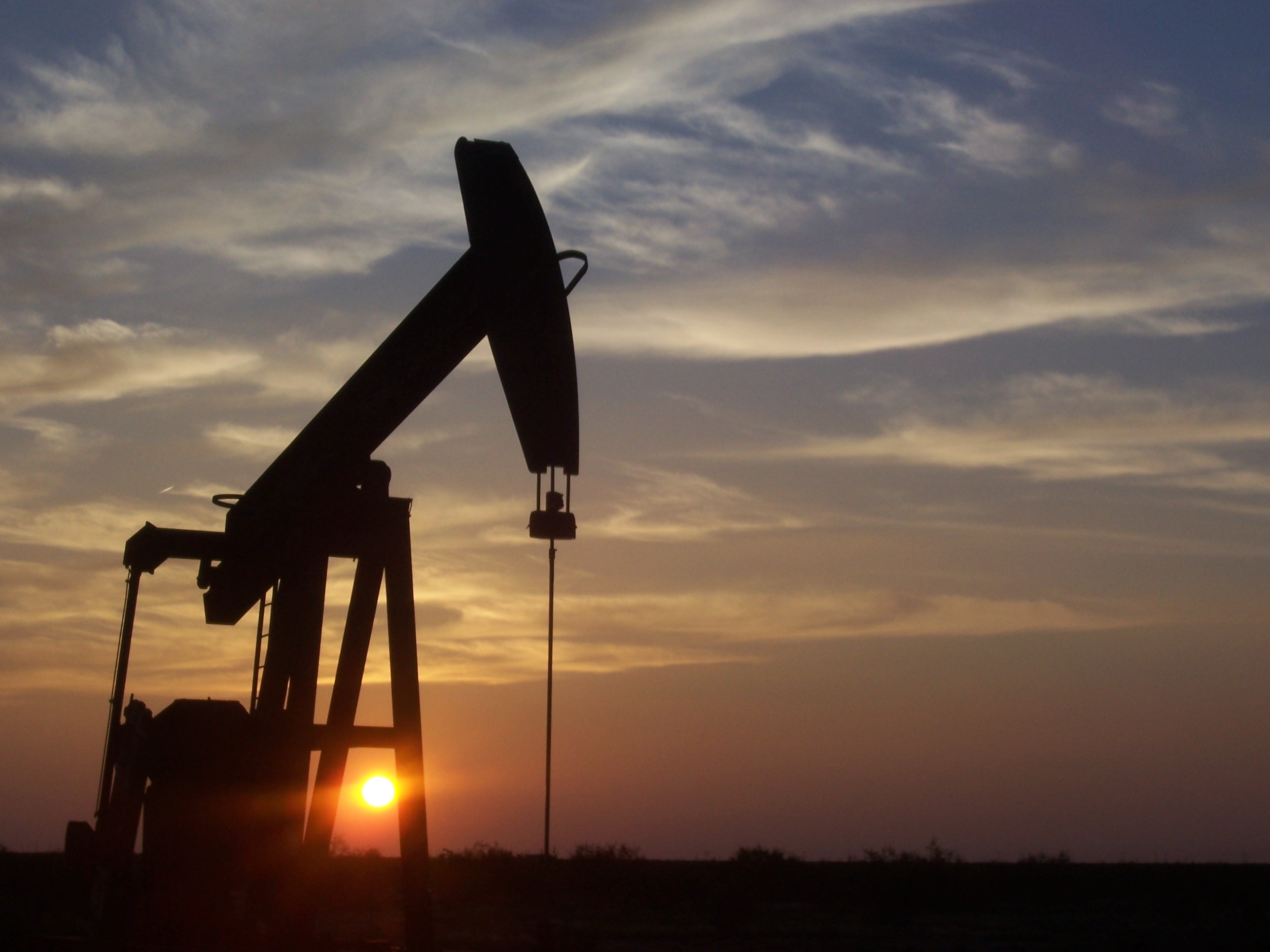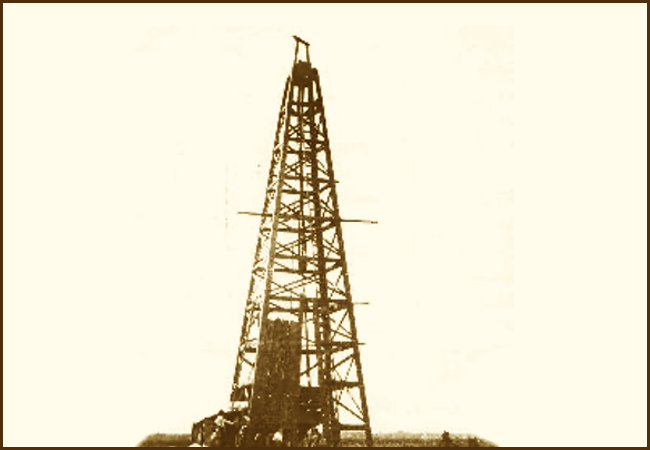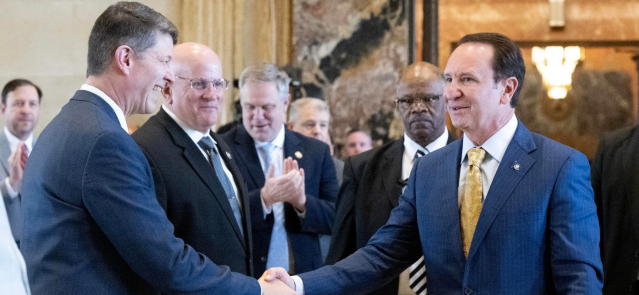Stay ahead of the curve as a political insider with deep policy analysis, daily briefings and policy-shaping tools.
Request a DemoOur History: Louisiana’s first oil well

The first commercial oil well in Louisiana history was drilled in Evangeline (near Jennings) in September of 1901.
Jules Clement, a French-speaking farmer, had noticed bubbles rising from a spot in one of his rice fields when it flooded. Knowing about the recent discovery of the Spindletop oil field in nearby Beaumont, Texas, he decided to conduct an experiment.
Clement stood on an old stovepipe over the bubbles, lit a match and threw it into the pipe. Gas from the bubbles ignited.Word spread to Jennings, where businessmen secured leases on about 2000 acres in the area and contacted Scott Heywood, a successful wildcatter in Texas, to see if he would be interested in their prospect.
Heywood noticed the land formations were similar to those at Spindletop and conducted his own tests. He lit the bubbles with matches and created a red flame, which convinced him that it was petroleum gas.
A drilling rig was moved from Beaumont to drill the well and drilling began on the Jennings Oil Company-Clement No. 1 on June 15, 1901. But they reached the 1,000 feet specified in the contract without finding oil.

A second well was drilled at the bottom of the first to 1,500 feet, at which point they ran out of drill pipe, still with no oil. Heywood shipped in more pipe and kept at it, and at 1700 feet struck “a very fine showing of oil in sugar sand.”
On September 21, 1901, the drillers created a “gusher” that blew out from the top of the drilling structure. A second successful well drilled adjacent to the first confirmed the discovery of Louisiana’s first oil field.
“The discovery and development of Louisiana’s first oil field represented the beginning of an energy transition for the nation and a new economic enterprise for Louisiana,” wrote historian Jason Theriot. “Three decades after the historic discovery, the oil and gas business grew to become the state’s main industry, surpassing all other traditional economic activities combined.”
The cyclical, boom-and-bust nature of the oil business has often helped to determine the political fortunes of the people who lead the state. But while oil and gas interests remain one of the dominant forces in state politics, the industry’s value to state coffers has waned significantly.
In 1982, mineral revenue comprised more than 40 percent of Louisiana’s state budget. These days, that number typically is closer to 4 percent.
Sources of information reviewed for this story include the Department of Energy and Natural Resources and 64 Parishes.
This piece first ran in the Sept. 19, 2024 edition of LaPolitics Weekly. Wish you could have read it then? Subscribe today!
Know the most important news affecting Louisiana
Get our free weekly newsletter that covers government, policy and politics that impact your everyday life—in 5 minutes or less.
Marusak: Federal regs, underfunding issues hinder Louisiana ports
Louisiana’s port system is the gateway into, and out of, the world. With more than 12,500 miles of waterways, our biggest economic driver – one in five jobs in the state – is at our backdoor. But the underfunding of projects necessary to feed the world, provide energy and keep the supply chain moving has …
Long-awaited DOTD reorganization report completed
LaPolitics/State Affairs has obtained the Boston Consulting Group report about the Louisiana Department of Transportation and Development. Gov. Jeff Landry tapped the Louisiana Coalition to Fix Our Roads, a private industry group, to initiate a planned reorganization effort for the department. The coalition selected BCG, which was expected to deliver the report to legislative leaders …
In Case You Missed it in LaPolitics Weekly
Here’s what you may have missed in the latest issue of LaPolitics Weekly, published last week… — TAX PLAN UNVEILED: Gov. Jeff Landry will have to navigate a political minefield to win approval of his proposed overhaul of Louisiana’s taxation system… — INSURANCE ISSUES: While some lawmakers and Commissioner Tim Temple continue to call for …
Headlines and Bylines
— The Advocate: Are flood protection projects like ones in Louisiana worth the cost? An official report says yes — The Advocate: Louisiana is Trump country, no longer a swing state. Once Democratic LaSalle Parish shows why — WBRZ: Baton Rouge mayor candidates address key issues in effort to win over undecided voters at Press …




